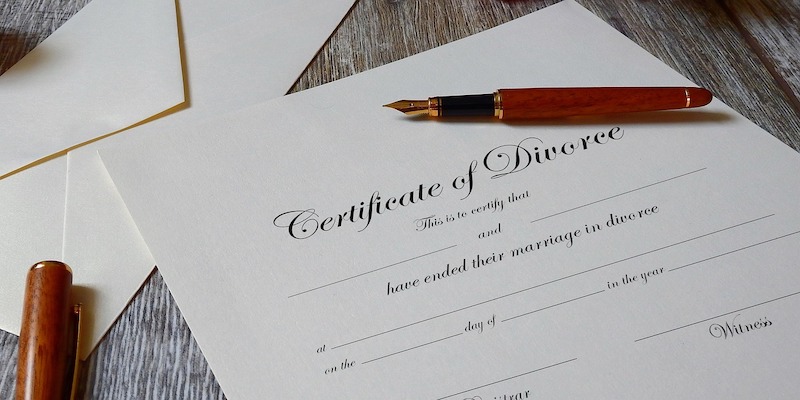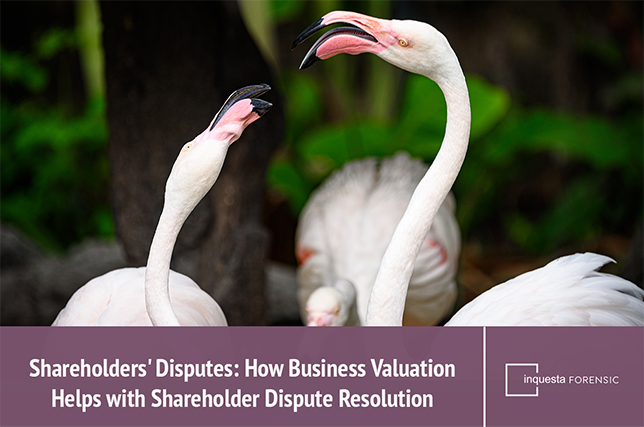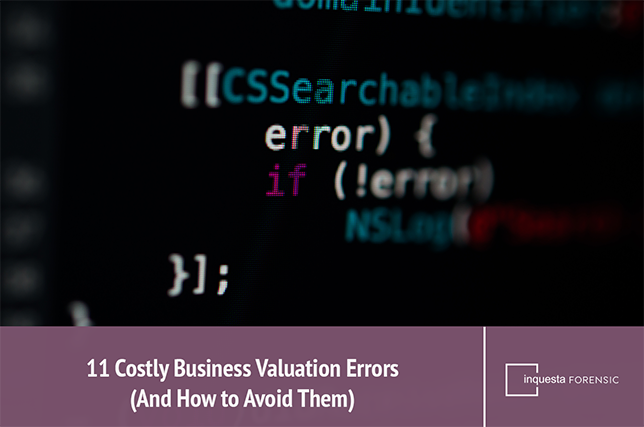It is not uncommon for business owners to ask what the need for business valuation is. After all, if the company is doing well and you have no intention of selling, why would it matter?
At Inquesta, we feel that understanding the precise details of your situation and business is essential information all owners should know. Understanding your business’ valuation should be seen as vital in the day-to-day running of the company, as well as for should you ever wish to expand your business, merge with another company, or any other circumstance.
A valuation is used to calculate the exact worth of an asset — such as a business — to determine its true current value. Business valuation can be key in a merger, investments, litigations, divorce, and much more — making it important to understand.
This blog will go into greater detail on the purpose of valuation, reasons for business valuation being key to your future, as well as the intricacies of the analysis.
What is the Purpose of Valuation?
The purpose of valuation is to better understand whether your current asset value is under or over what the market would perceive it to be. A valuation can be performed on all manner of different assets, including company bonds, property, or even an entire company.
Valuation is the method of analysing the efficiency and functionality of your decisions up to that point. It is essentially tracking your performance relative to the value of your company, not merely in the amount of revenue you take in. Valuation allows you to better understand your situation, so you can make more informed decisions going forwards.
Valuation can also be particularly important when it comes to matters of property, finances, and tax. If you own the property you are operating in, understanding the value of the building is vital for your taxes. It is also important should you wish to rent the property down the line or keep up to date on the security loans taken against the property.
The Reasons for Business Valuation
Due to the likely costs associated, many company owners rarely wish to conduct a valuation if there is not an eminent need. The most common reasons for business valuation are varied, however they generally revolve around divorce, shareholder disputes, estate planning, and company sales/mergers.

Dissolution of a Marriage
Without a prenuptial agreement, all assets are expected to be split evenly in the event of the dissolution of a marriage. This will include a business should one party absolutely own or partially own one.
During marital disputes and divorce proceedings it is vital that all assets are valued and shared accurately and evenly. However, it is not uncommon for the value of some assets to be fabricated in order to attempt to pull the wool down over the eyes of the other party.
This occurs particularly when it comes down to highly valuable and highly sentimental assets. Since a business can cover both of these bases, it is common for business valuation to be required during the process to guarantee transparency and fairness.
For more information on business valuation for divorce settlements, please check out our blog on the subject.
Estate Planning
When passing your assets down to loved ones, they are usually required to pay some form of inheritance tax on anything bequeathed. To find out how much tax is expected, you can value the total sum of the money, property, and possessions before putting it in your will. If you don’t take this step, your beneficiaries will be required to as part of the process of applying for probate.
It is important to value your assets — including any companies you own — because it affords you time to work to minimise the tax hits faced by beneficiaries after you are gone.
Sales, Mergers, Acquisitions, and Agreements
A valuation is routinely required when a company is acquired, files for bankruptcy, reorganises, splits up, makes a buy/sell agreement, and more.
Either one or both parties may be required to conduct their own independent business valuations depending on the circumstance and situation.
It may be worthwhile under any of these scenarios to consider instructing a financial specialist to conduct a valuation on your behalf.
Exit Strategy Planning
Should you wish to sell your business at any point in the near or far future, it would be a wise idea to get a base valuation of the company. This will allow you to strategise over ways to improve the profitability of the organisation to in turn increase the value for when the time comes.
It also allows you to gain a clearer understanding of exactly where your company stands on the market, allowing you to more easily come to a fair agreement.

Shareholder Dispute
There are a number of common reasons why a shareholder may want to know the value of their shares during a dispute. The most prominent however are if one party wishes to exit a company while seeking to ensure that they receive a fair value, or a shareholder may feel that they are not being paid the correct dividends that their share value demands.
Take a look at our blog detailing how to calculate the share value of a private company for more information on the practicalities of calculating the value of your shares.
How Forensic Accounting Helps with Valuing a Business
The benefit of forensic accounting when valuing a business is to ensure total clarity during often complicated proceedings. A forensic accountant has specialist training that helps to identify and solve financial conundrums and irregularities. This is particularly beneficial in situations of suspected hidden assets, falsified valuations, or employee fraud — all of which can have a knock-on effect to business valuation.
Every business valuation is different. As a result, the method utilised by a forensic accountant in one case may not be relevant in the next. However, some common methods forensic accountants may utilise to help with valuing and analysing the value of a business are:
Bank Account Examination
This is particularly relevant for cash-heavy businesses (bars, restaurants, nightclubs, shops). Analysing a company’s bank accounts; how much is going in and coming out compared to what is expected can identify any irregularities that need clarification.
Common irregularities that can impact a business’s valuation and would require follow up investigation include:
- Employee theft/embezzlement
- Hidden assets
- Ghost vendors/employees
- Strange money trails
- Suspected money held overseas
Inventory assessment
Another invaluable method of assessing a business’s value is to examine its inventory. Getting a clear idea of exactly how much inventory the company has in reserve, and the value of said stock can make up a large chunk of the value of the business.
Additionally, a common method of inflating a value and making a business seem more profitable is to understate the cost and amount of inventory.
Assessing the businesses accounts and current inventory can be an effective measure to look for any potential irregularities that could affect business valuation.
Why Work with Inquesta when Valuing a Business
The need for business valuation is generally a pressing one. Failure to conduct a valuation properly, could seriously impact the company sale, divorce proceedings, etc. So you want to be sure you get it done right, when you can.
If you have any cause for having your business valued, it is vital that you seek expert assistance as soon as possible. Inquesta’s team of dedicated advisors have experience valuing businesses of all shapes and sizes — we have seen and worked with it all.
For further information on business valuation with regards to lawyers instructed in complicated divorce proceedings, check out our booklet.
Inquesta are on hand to help you with your business valuation, no matter what your situation is. To find out more about what Inquesta can do to assist your business valuation and more, contact a member of our team today.
- Your Partner’s Been Convicted: Can They Take Your House? What Section 10a POCA Means For You
- The Essential Role of Forensic Accounting in High Net Worth Divorce
- How to Value a Startup Business: A Guide for UK Entrepreneurs
- Pig Butchering Scams: Guide to Crypto Romance Fraud
- Shareholders’ Disputes: How Business Valuation Helps with Shareholder Dispute Resolution








